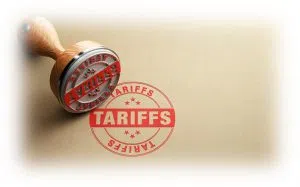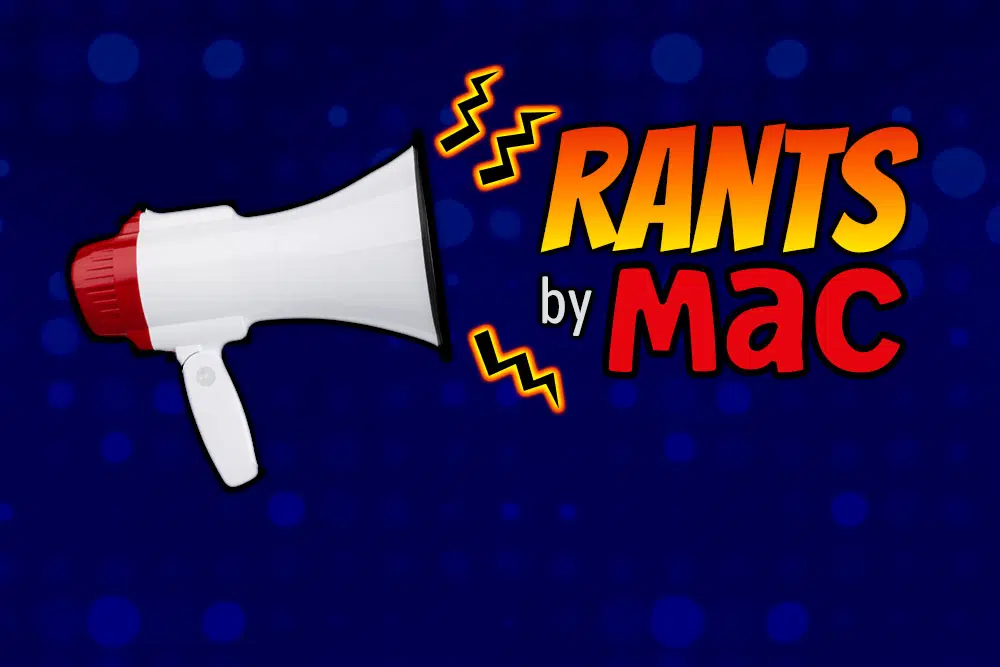Former President Donald Trump said “a tariff is a tax on a foreign country. A lot of people like to say it’s a tax on us. No, …it’s a tax that doesn’t affect our country.”
Donald Trump loves tariffs and seems to believe that he can cut taxes for all Americans by just waving the magic tariff wand. Well, who doesn’t want to see their taxes cut? And reducing deficits and U.S. debt is something we should have been doing 50 years ago.
The problem with all of that logic is that Donald Trump doesn’t understand how tariffs work, and he reconfirms that fact each time he discusses the subject.

Vice President Kamala Harris, refuted Trump’s plan for a 10%-20% tariff on imported goods at the Democratic Convention this summer, arguing that the result would be a hefty price tag for U.S. consumers.
“He intends to enact what in effect is a national sales tax — call it a Trump tax — that would raise prices on middle-class families by almost $4,000 a year,” the Vice President stated.
The Center for American Progress estimated that a 20% tariff on imports could add $3,900 to a typical American budget each year.
Mark Cuban, who supported Trump in 2016 but is campaigning for Harris this year, noted that Trump seems to lean more toward Marxism than Harris. Trump’s campaign has repeatedly labeled Harris a Marxist and/or a Communist.
Cuban posted “Who has proposed price controls? Trump. Who has proposed a tariff tax on all imports because he doesn’t understand them? Trump. Who has said he would punish companies that produced in Mexico, despite his policy, USMCA, allowing it? Proving he doesn’t know his own policies? Trump.”
“He is far more of a Marxist than she ever could be. He just doesn’t know it yet,” Cuban added.
At the recent presidential debate, Trump declared that with tariffs, “Other countries are going to finally, after 75 years, pay us back for all that we’ve done for the world.” Whoops, that’s not how it works Don-old.
“When the U.S. imposes a tariff on imports, it makes those products more expensive,” Faris Khatib, CEO of Ideal Tax, told GOBankingRates. “Companies that import these goods typically pass the extra costs to customers by increasing prices, which means you pay more for those goods.”
Trump wants to cut tax rates on large corporations and extremely wealthy individuals, and he plans to make up the difference with tariffs. Someone needs to tell him it doesn’t work that way.
Corporate tax rates are now 21 percent. Does anyone remember what those rates were under Reagan? They were 40+ percent. Trump wants to cut them to fifteen. Does anyone wonder why our deficit and our debt are both increasing by large leaps?
Economists argue that tariffs are bad for the economy and harmful to consumers, often having a regressive effect, affecting lower-income consumers disproportionately. Tariff-impacted higher prices typically penalize individuals with limited financial means, who spend a higher percentage of their income on basic necessities.
So, did tariffs implemented under the Trump administration work? According to economists from various nonpartisan and bipartisan think tanks, the answer is a decisive no. A CNBC study estimated that Trump’s tariffs hurt consumers and, in fact, resulted in one of the largest U.S. tax increases in decades.
Researchers also determined that Trump tariffs lowered the real income of American workers.
Trump’s tariff war with China resulted in Chinese retaliatory tariffs that devastated U.S. farmers. How did the Trump plan address that? With government handouts.
“Ultimately, my bottom line looks about the same as it did pre-Trump trade war, but much of that ‘income’ came in the form of Trump’s bailout,” Scott Blubaugh, an Oklahoma-based farmer and president of the Oklahoma Farmers Union, told Yahoo Finance. “Those are subsidies that I wouldn’t have needed if the trade war hadn’t happened. I’m grateful for the dollars to keep my farm afloat, but I’d much rather earn those dollars than be given them. The trade wars limited my and other farmers’ ability to earn.”
JD Vance said in late August that as a result of tariffs Trump imposed during his presidency, “prices went down for American citizens. They went up for the Chinese, but they went down for our people.” Sorry JD, just because you keep saying it, doesn’t make it true.
According to Goldman Sachs (GS) analysts, the better outcome for the economy, in the 2024 presidential election, would be a Harris win and a Democratic sweep of Congress.
The University of Pennsylvania’s Penn Wharton Budget Model estimates that Trump’s economic proposals would increase the federal deficit by $5.8 trillion over the next decade, almost five times more than the $1.2 trillion that they estimate Harris’ proposals would add.
The likely result of the Trump plan: increased inflation, lower GDP, and a possible recession… or worse. The final evaluation? Tariff-ICK.
Curt MacRae is a resident of Coldwater, MI, and publishes opinion columns regularly.
Tweets @curtmacrae — comments to rantsbymac@gmail.com






Comments